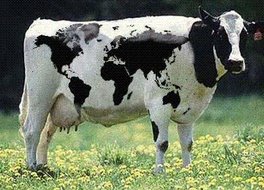Contagion by Robin Cook (this review was written for my class on zoonoses)
Robin Cook’s novel, Contagion, is supposed to be a plausible example of domestic bioterrorism. Published in 1995, before the current fears and instability had a chance to take hold, many of the suggested possibilities may be a bit unrealistic for the modern health industry. Otherwise, the situation described is a fairly accurate portrait of the risks posed by modern health care.
Cook opens the novel with a quote about the dangers of market-driven health care, and that appears to be his agenda for the plot. The protagonist, Jack Stapleton, was driven out of private ophthalmology practice and into a pathology residency by a large hospital administration company, Americare; because of the relocation, his wife and children are forced to take a commuter flight to visit him and are killed when it crashes. He develops an antipathy for all managed care, especially Americare. Taking a job as a medical examiner, he flirts with danger and avoids personal connections until forced into a relationship with an advertising executive, Terese, who is in charge of another managed care company’s advertising account. At the same time, he is investigating several succeeding cases of plague, tularemia, meningitis, and finally influenza at an Americare-run hospital, which is not happy to have him ‘poking his nose in’. Despite his bosses’ resistance, he persists in sneaking around to probe the outbreaks, convinced that no one else is taking it seriously. Over time, he is threatened by a gang, which eventually attempts to kill him and does kill a girl who helped him. He is saved by another gang from his neighborhood, only to be captured by the bioterrorists and transported into the Catskills for disposal. On the way, the influenza virus with which he had been infected in the course of his investigations infects the terrorists, who die without killing him. He escapes with the help of the friendly gang and lives through an effective quarantine that ends the influenza outbreak.
While the novel points out quite rightly that zoonotics can be extremely dangerous in hospital outbreaks, the route of infection portrayed (purposefully contaminated humidifiers) may make it seem as if they are not likely to happen to healthy people. In an obviously pre-9/11 book, the cause of bioterrorism is simply greed on behalf of an advertising executive and morbid curiosity by her brother, a lab tech. The samples were produced in a private lab simply for collecting purposes, so they were not weaponized in any way. History of contact with animals was only seen as a distraction in the search for the cause. In all, I find the premise quite unlikely in today’s society; hospital outbreaks of zoonotic disease, I believe, are more likely to be either purposeful to cause harm to people and society or completely accidental and due to ignorance on behalf of the medical community.
My biggest complaint about this book is the way certain classes of medical fields were associated with moral judgements. Of course, with the protagonist being a pathologist, pathology was seen to be generally good, medical examiners were simply hard-working public citizens doing their best to save the city from itself. In contrast, the city epidemiologist was portrayed as somewhat lazy, self-centered, ignorant, and obstructive to a proper investigation. Being an epidemiologist myself, I resent that portrayal. In my experience, the pathologists are less likely to be interested in outbreaks unless they provide good samples, while it is left to the epidemiologist to draw the necessary links and find the cause. Also, the CDC was mentioned briefly, but only in its role as a diagnostic lab and quarantining authority; in actuality, a medical situation like the one in this book would be controlled completely by the CDC as soon as they knew about it. Also of importance, in the case of zoonotic pathogens, veterinarians were only mentioned in passing, as a source of diagnostics for the pets of the infected; veterinarians were never consulted, the pets were never sampled, and the possibility of a zoonotic source was practically ignored.
Finally, while they make for good fiction, the actions of the various medical authorities in this book are utterly unrealistic. I cannot imagine an American hospital forcibly removing a medical examiner from their grounds during the course of an investigation into dangerous outbreaks on their property. I cannot imagine a medical examiner breaking and entering to find the source of these outbreaks. The role of law enforcement was relegated to deus ex machina, rather than a vital resource in an outbreak investigation.
In conclusion, this book may present a good thriller for those who enjoy the genre, but it is almost dangerously inaccurate as far as zoonotic risks and the proper way to investigate a nosocomial outbreak.
